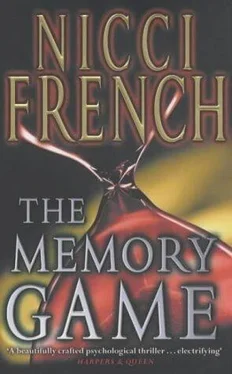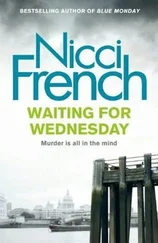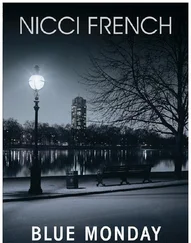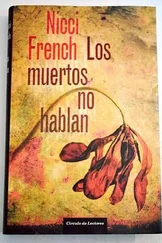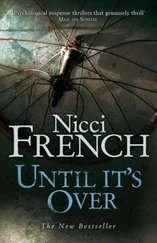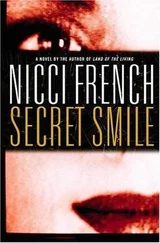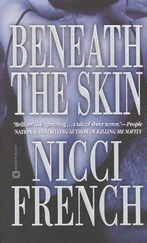Nicci French - The Memory Game
Здесь есть возможность читать онлайн «Nicci French - The Memory Game» весь текст электронной книги совершенно бесплатно (целиком полную версию без сокращений). В некоторых случаях можно слушать аудио, скачать через торрент в формате fb2 и присутствует краткое содержание. Жанр: Триллер, на английском языке. Описание произведения, (предисловие) а так же отзывы посетителей доступны на портале библиотеки ЛибКат.
- Название:The Memory Game
- Автор:
- Жанр:
- Год:неизвестен
- ISBN:нет данных
- Рейтинг книги:4 / 5. Голосов: 1
-
Избранное:Добавить в избранное
- Отзывы:
-
Ваша оценка:
- 80
- 1
- 2
- 3
- 4
- 5
The Memory Game: краткое содержание, описание и аннотация
Предлагаем к чтению аннотацию, описание, краткое содержание или предисловие (зависит от того, что написал сам автор книги «The Memory Game»). Если вы не нашли необходимую информацию о книге — напишите в комментариях, мы постараемся отыскать её.
The Memory Game — читать онлайн бесплатно полную книгу (весь текст) целиком
Ниже представлен текст книги, разбитый по страницам. Система сохранения места последней прочитанной страницы, позволяет с удобством читать онлайн бесплатно книгу «The Memory Game», без необходимости каждый раз заново искать на чём Вы остановились. Поставьте закладку, и сможете в любой момент перейти на страницу, на которой закончили чтение.
Интервал:
Закладка:
‘I’m giving the keynote speech at a conference,’ Alex said. ‘I thought you might be interested.’
‘Why me ?’
‘Because it’s about recovered memory.’
‘What? ’
I was stunned.
‘Are you serious?’
‘Of course.’
‘But I don’t understand, is it something to do with me ?’
Alex laughed.
‘No, Jane, this is a subject I have an interest in.’
For the rest of the journey I stared out of the window. Alex drove into the basement car-park of the Clongowes Hotel on Kingsway. We went up in the lift and walked across the lobby to a conference room with a sign outside saying ‘Recovered Memory: Survivors and Accusers’. Alex signed us both in at the reception and I received a badge bearing my name, written in ballpoint pen. I was apparently not expected. In the hall were rows of desks, as if an exam were about to be taken. Most of them were occupied and Alex steered me to a seat at the back.
‘Stay here,’ he said. ‘I’ll be with you again in twenty minutes or so. There are one or two people I would like you to meet.’
He winked at me, then walked down the aisle towards the front. His progress was slow because he greeted almost everybody he passed, shaking hands, hugging, patting backs. A beautiful woman, dark, with olive skin, clattered towards him and gave him a hug, one high heel cocked up behind her thigh. I felt a twinge of jealousy and caught myself. I had had months of Alex to myself and it was something of a shock to see him in public. It was like seeing Dad at the office, and realising with a pang that he had a life outside his relationship with me. I made myself think of something else. On the desk in front of me was a white ballpoint pen and a small lined pad of paper, both bearing the inscription ‘Mindset’. There was a folder bearing the title of the conference and inside was an assembly of documents. One contained a list of delegates, about a hundred of them. Against each name was the person’s qualification. There were doctors, psychiatrists, social workers, representatives of voluntary organisations and a number of people, all women, labelled simply as ‘survivors’. I supposed that I too was a survivor, and an accuser as well, for that matter.
At the front of the hall was a table with a jug of water and four glasses. Beside it was a lectern. Displaying the charming diffidence with which I was already familiar, Alex shook hands with a final delegate and made his way to the lectern. He gave the microphone a little tap which echoed round the hall.
‘It’s twelve fifteen, so I suppose we’d better get underway. I’d like to welcome you all to the 1995 Recovered Memory conference, organised by Mindset, and I’m glad to see so many familiar faces here. This is your conference, and, like last year, it’s been designed to maximise the delegates’ participation, so I’ll try to stem my natural eloquence, or at least that’s what I call it. I’m aware of being in an audience with many distinguished fellow analysts.’ There was a dutiful ripple of laughter. Alex coughed nervously, sipped from a glass of water (I was shocked to see his hand trembling) and continued.
‘I’m just going to give a brief introductory talk, setting out some of our agenda. Then Dr Kit Hennessey will be giving an outline of some recent research. Then we break for lunch, which I’m told you’ll find outside and to the right. Just hand in the token that you’ll find in your folder. After lunch we split up for a series of workshops. Those are in different conference rooms all on this floor. You’ll find the details also in your folder. I think that’s about all.
‘Now for my brief contribution.’
Alex opened the slim document folder he was carrying and removed some papers. This was a different Alex from the easygoing, enabling, ironic listener with whom I had spent so much of the last few months. He was passionate, unambiguous, polemical, from his opening statement: ‘Recovered memory is one of the greatest hidden scandals of our time.’ He spoke of how generations of people, especially women, had been compelled to hide traumas they had suffered in their early lives. When they had spoken of them they had been disbelieved, vilified, marginalised, diagnosed, lobotomised. He admitted with regret that the very medical authorities best qualified to expose the horror, the psychiatrists and analysts, and the criminal authorities, the police and lawyers, had become collaborators in its suppression.
‘Law and science,’ he said, ‘have been misused against these victims just as in the past they have been misused against other groups wherever it has suited the interests of authority to deny the rights of victimised minorities. So-called scientific objectivity, so-called burdens of proof have themselves been used as instruments of oppression. We owe it to these victims of abuse, who have shown the courage to remember, to say, “We believe you, we support you”.’
I knew now why Alex had brought me here. I had felt mad and strange and an outcast, trapped in my own private sufferings. This was part of what Alex meant by going public: the discovery that I was not alone, that other people had experienced what I had experienced. With a pang that almost made me cry as I sat there at the back of the hall doodling on the shiny dossier cover, I was reminded that this was what I had loved about Natalie: she had validated me by feeling the things I had felt. Had I, too, been buried when she had been buried?
Alex had finished. He asked if there were any questions and several hands went up. One man, a deputy director of social services, thanked Alex for his speech but said that the one omission from his survey was the political dimension. Legislation was needed. Why was there no MP among the delegates, or even a local councillor? Alex shrugged and smiled. He agreed with the delegate, he said. From personal connections, he knew a number of politicians who were sympathetic to their cause, but the implications of findings about repressed memory were so great, and the entrenched medical and legal authorities so powerful, that they were extremely unwilling to go public with any form of commitment.
‘We have to push the issue another way,’ he said. ‘We need some high-profile legal cases to demonstrate that this phenomenon cannot be ignored. When that happens, and public awareness has increased, it will seem less dangerous. Perhaps when the bandwagon is rolling the politicians will jump on it.’
There was a round of applause. As it faded, a woman stood up. She was strikingly short, dowdily dressed, in her late forties. I expected a personal testimony of remembering abuse but she identified herself as Thelma Scott, a consultant psychiatrist at St Andrew’s in central London. Alex gave her a wry nod of recognition.
‘I think we all know who you are, Dr Scott.’
‘I’ve been looking at your list of events, Dr Dermot-Brown,’ she said, holding the conference folder. ‘“Believing and Enabling”, “Listen to Us”, “Legal Obstacles”, “The Doctor’s Dilemma”, “Protecting the Patient”.’
She paused.
‘Yes?’ said Alex, with just a hint of exasperation.
‘Is this a forum for discussion and inquiry? I don’t see any discussions planned here about the problems of diagnosis, the possible unreliability of recovered memory, the protection for families against false accusations.’
‘That’s not necessary, Dr Scott,’ Alex said. ‘The whole history of this subject is about protection for families against true accusations. We don’t yet face the problem of having to discourage people from making accusations of abuse. The pressures against authentic sufferers are so great that it is almost impossible for them even to face up to their recovered memories, let alone make public assertions as to their legal rights.’
Читать дальшеИнтервал:
Закладка:
Похожие книги на «The Memory Game»
Представляем Вашему вниманию похожие книги на «The Memory Game» списком для выбора. Мы отобрали схожую по названию и смыслу литературу в надежде предоставить читателям больше вариантов отыскать новые, интересные, ещё непрочитанные произведения.
Обсуждение, отзывы о книге «The Memory Game» и просто собственные мнения читателей. Оставьте ваши комментарии, напишите, что Вы думаете о произведении, его смысле или главных героях. Укажите что конкретно понравилось, а что нет, и почему Вы так считаете.
